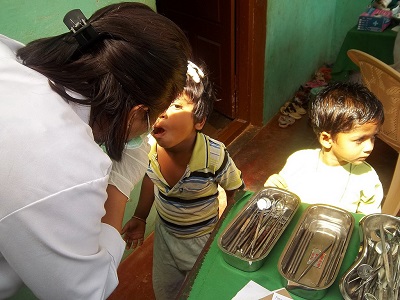
(Image Credit:https://c2.staticflickr.com/8/7004/6419162895_67e7174d50_b.jpg)
Health programs are crucial and critical to the welfare of our people. Their proper implementation ensures stronger immunity, better health and lower healthcare expenses for the society.
Immunizations for the young and the elderly, health care for the newly insured and pregnant women, and continued monitoring of children and young adults for youth obesity all form parts of health programs.
But implementing health care programs on a large scale is not easy.
What are the major problems that government agencies, aid workers and nonprofits face?
Shortage of Qualified Professionals
One of the most significant problems that hinder the effective implementation of health programs is shortage of trained and qualified professionals.
With an aging baby boomer population, and lifestyle diseases more common and widespread, there is an increased demand for quality health care services. But the number of qualified professionals serving in the healthcare industry hasn’t seen a corresponding spurt. And as a result reach of healthcare programs have suffered.
In many cases health programs require professionals to travel to remote towns and underserved communities, and are required to be on-duty for most parts of the day and often at nights as well. The harsh working conditions do not deter most dedicated healthcare workers but may prove a hurdle for some.
Better and lucrative incentives will help attract professionals to state healthcare systems. Aid to erase student loans and rotational employment options are some of the incentives that state governments offer to attract talent.
Failure to Attract Youngsters to a Career in Healthcare
Students in schools and colleges are attracted to careers that are rewarding, fulfilling and have good growth prospects. A majority of young Americans are not keen to pursue science or math for higher studies.
Young people should be made aware of the excellent job opportunities and growth prospects in the field of healthcare. Allied healthcare professionals are also in demand and are essential for the smooth functioning of the healthcare systems and programs.
Phlebotomist and dental assistant training programs, and medical assistant training programs are of short duration, of reasonable cost and have low entry-level barriers. Pharmacy technician programs will train students to fill up the 70,700 new job openings predicted in the next few years.
With proper encouragement, awareness and support more youngsters will be enthused to explore careers in this dynamic field and directly contribute to the betterment of their community and the country.
Improper Planning and Evaluation
Proper planning includes deployment of healthcare personnel, allocation of funds, tracking of program activities and ensuring the maximum participation.
Evaluation is another important aspect of health program implementation. Effective evaluation will help understand the outcome, success and improvements that the health program brought about.
Proper evaluation will help assess the cost-efficiency of the programs and their viability.
Health programs, studies and initiatives if implemented properly will throw up outcomes that can influence policy makers, elected officials, insurance providers, healthcare industry and the public.
So planning and evaluation are essential to understand the full scope and potential of health programs, and to improve public health and future initiatives.
Poor Awareness
The success of public health programs also depend on the reach and awareness of the targeted groups or communities. In many cases, underserved ethnic groups and communities do not participate in health care initiatives proactively.
The state governments and other agencies need to include community or group leaders, and influencers to gain the maximum outreach. They will also be able to communicate with the community members more effectively and help them understand the benefits they will derive from participating.
Lack of Funds
Federal funding is a cause of worry for several nonprofit organizations.
In many cases competitive grant processes deny aid to nonprofits and other agencies working in needy areas. If they do not rank high enough funds are hard to come by.
The government will have to review the eligibility criteria and make evaluation processes more comprehensive. In needy and backward areas the health programs form a critical safety net for the resident families. Lack of funds will blow a big hole in that net and will bring down the quality of life in the affected areas.
Conclusion
Health programs are the backbone of a healthy, safe and secure society. With generous funds, purpose and continuous evaluation these programs can very well meet most of Americas health needs.
